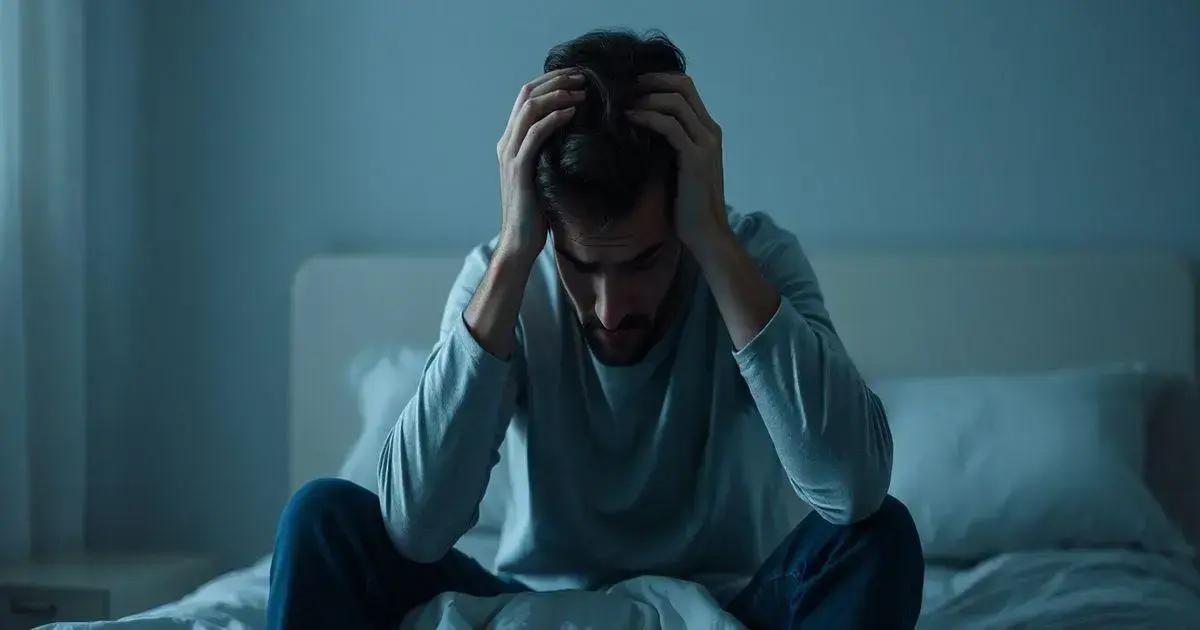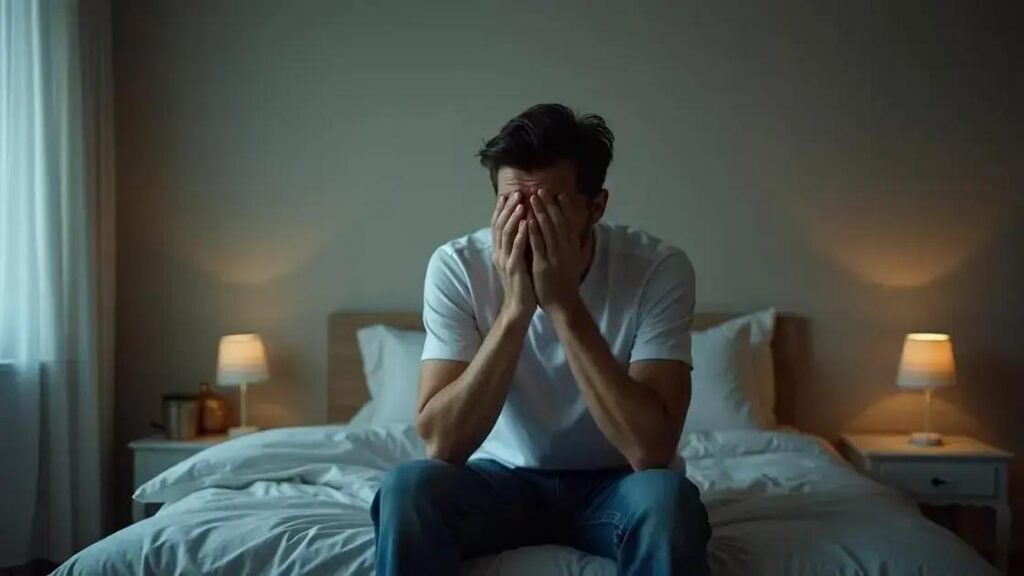The psychological causes of erectile dysfunction include stress, anxiety, depression, and relationship issues. Therapy and support, such as cognitive-behavioral therapy and couples counseling, can effectively address these factors and improve sexual health.
Erectile dysfunction is a common issue that can stem from various psychological factors. Many men face challenges attributed to stress, anxiety, and depression, which profoundly impact their sexual health. In this article, we will explore the psychological causes of erectile dysfunction, discussing how stress can inhibit sexual performance, the interplay of depression and libido, and the role of relationship dynamics in this issue. Furthermore, we will provide insights into effective therapies and support that can help restore both confidence and intimacy.
Understanding Erectile Dysfunction

Erectile dysfunction (ED) is when a man cannot achieve or maintain an erection suitable for sexual activity. It is more common than many think and affects men of all ages. Understanding erectile dysfunction is essential for addressing its causes effectively.
What Causes Erectile Dysfunction?
There are two main causes of ED: physical and psychological. While many people focus on physical issues like diabetes or heart disease, mental health plays a crucial role. When a man experiences stress or anxiety, it can greatly affect his sexual performance.
The Psychological Impact
Feelings of inadequacy or low self-esteem can lead to a cycle of anxiety and avoidant behavior. Men may start to fear sexual encounters, which can worsen the problem. Anxiety about performance can create a mental block, making it even harder to achieve an erection.
Common Misconceptions
Many men believe that talking about ED is a sign of weakness. This stigma can make it challenging to seek help. However, discussing this condition with a partner or healthcare provider is essential for finding solutions.
Importance of Seeking Help
Recognizing that ED has psychological causes encourages men to seek treatment. Professional help, such as therapy or counseling, can significantly improve mental health and relationships. Understanding that they are not alone can empower men to take action and improve their sexual health.
The Role of Stress and Anxiety

Stress and anxiety are significant psychological factors contributing to erectile dysfunction (ED). When a man feels stressed, his body goes into fight-or-flight mode, which can suppress sexual function. This reaction can lead to physical changes that hinder the ability to achieve an erection.
How Stress Affects the Body
Chronic stress can elevate cortisol levels, which may impact testosterone production. As testosterone is crucial for sexual health, lowered levels can directly affect libido and erection quality.
Anxiety and Performance
Performance anxiety is a common issue for many men. Worries about sexual performance can create a mental block, making it harder to reach arousal. The more a man worries about his ability to perform, the more likely he is to experience difficulties.
Coping Mechanisms
Many men might deal with stress and anxiety through unhealthy habits, such as alcohol consumption, which can further impair erectile function. Finding healthy ways to cope, like exercise or relaxation techniques, can have a positive impact on sexual health.
The Importance of Open Communication
Talking about stress and anxiety with partners can ease these feelings. Open and honest discussion helps to build trust and intimacy, which can alleviate some performance pressure and improve overall sexual experiences.
Impact of Depression on Sexual Health

Depression significantly impacts sexual health and can lead to erectile dysfunction (ED). When a man is depressed, his overall energy levels, motivation, and interest in activities—including sex—can decrease. This emotional state often results in diminished sexual performance.
Effects of Depression on Libido
One of the primary ways depression affects sexual health is through a reduced libido. Feelings of sadness and hopelessness can make sexual desire hard to feel, leading to avoidance of intimate situations.
Physical Symptoms of Depression
Depression can also result in physical symptoms such as fatigue, sleep disturbances, and changes in appetite. These physical issues can contribute to ED, making it even more challenging to achieve or maintain an erection.
Medication and Its Impact
Many medications prescribed for depression can have side effects that include sexual dysfunction. Some antidepressants may lower libido or make it difficult to achieve orgasm, further impacting sexual relationships.
Addressing Depression for Better Sexual Health
Seeking treatment for depression through therapy or medication can improve sexual health. It is essential for men experiencing these symptoms to openly discuss their feelings with healthcare providers, as understanding and addressing depression is crucial for overall well-being and intimate relationships.
Relationship Issues and Erectile Dysfunction

Relationship issues can significantly contribute to erectile dysfunction (ED. When partners face conflict or communication problems, it can create stress and anxiety for both individuals, leading to sexual difficulties. Poor relationship dynamics often exacerbate underlying psychological issues, further impacting sexual health.
Lack of Communication
Open communication is essential in maintaining a healthy relationship. When couples struggle to talk about their feelings, desires, or concerns, it can create misunderstandings. This lack of connection may result in anxiety around intimacy, which could lead to ED.
Impact of Trust Issues
Trust plays a crucial role in a romantic relationship. If one partner feels insecure or doubts the commitment of the other, this can lead to emotional distress. Feelings of insecurity can heighten anxiety during intimate moments, making it difficult to achieve or maintain an erection.
Emotional Disconnect
Changes in emotional intimacy can also affect sexual health. If partners stop expressing love and affection, the relationship may feel more like a routine. This emotional disconnect can reduce sexual desire and contribute to erectile dysfunction.
Seeking Help as a Couple
Couples therapy can be beneficial for addressing relationship issues. Professional guidance helps partners improve communication and resolve conflicts. Working on relationship dynamics can relieve pressure, improve emotional closeness, and potentially alleviate ED.
Finding Solutions: Therapy and Support

Finding effective solutions for erectile dysfunction (ED) often involves therapy and support. Many men experience psychological factors that contribute to ED, making professional help vital. Therapy can address underlying issues such as stress, anxiety, and depression, leading to improved sexual health.
Types of Therapy
Several types of therapy can help with ED. Cognitive-behavioral therapy (CBT) is particularly effective, as it works to change negative thought patterns. This therapy helps men develop healthier perspectives on sexual performance and intimacy.
Couples Therapy
In addition to individual therapy, couples therapy can improve relationships by focusing on communication and emotional support. This type of therapy addresses shared concerns, helping partners to work through issues together. Improved communication can ease performance anxiety.
Support Groups
Joining support groups offers additional benefits. Sharing experiences with others who face similar challenges can reduce feelings of isolation and shame. In a group setting, men can learn coping strategies and build a support network.
Medical Guidance
Consulting a healthcare provider is also crucial. They can offer advice on medications or other treatments that may help with ED. Discussing the psychological and physical aspects of the issue with a doctor can lead to a comprehensive approach for recovery.
Understanding and Addressing Erectile Dysfunction
Erectile dysfunction (ED) is a common issue that can stem from various psychological causes, including stress, anxiety, depression, and relationship problems. Recognizing the psychological factors that contribute to ED is crucial for finding effective solutions.
Therapy and support play significant roles in addressing these issues. From cognitive-behavioral therapy to couples counseling, various therapeutic approaches can help men manage their mental health while improving their sexual health.
Additionally, support groups and medical guidance provide valuable resources for those facing these challenges. Seeking help is a sign of strength, and taking proactive steps can lead to improved intimacy and relationships.
Remember, understanding erectile dysfunction is the first step toward overcoming it, allowing individuals to reclaim their confidence and enhance their overall well-being.
FAQ – Frequently Asked Questions about Erectile Dysfunction
What are the common psychological causes of erectile dysfunction?
Common psychological causes include stress, anxiety, depression, and relationship issues, which can all impact sexual performance.
How does stress affect erectile dysfunction?
Stress triggers the body’s fight-or-flight response, which can inhibit arousal and lead to difficulties in achieving or maintaining an erection.
Can depression impact my sexual health?
Yes, depression can significantly reduce libido and energy levels, contributing to erectile dysfunction.
How can therapy help with erectile dysfunction?
Therapy, such as cognitive-behavioral therapy, can help address negative thought patterns, improve self-esteem, and resolve underlying issues related to ED.
Are support groups beneficial for men with erectile dysfunction?
Support groups can provide a sense of community and understanding. They allow men to share experiences and coping strategies, reducing feelings of isolation.
What types of therapy should I consider for erectile dysfunction?
Cognitive-behavioral therapy, couples therapy, and individual counseling are effective options for addressing psychological causes of erectile dysfunction.












